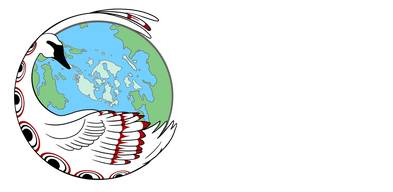13 Moons Food Sovereignty
13 Moons Food Sovereignty is a field-to-classroom project that follows the cosmic lunar cycle to identify traditional food harvest and traditional practices, restoring health and promoting community wellness by moving from Western concepts of agriculture to regional traditional practices.
Our current 13 Moons Food Sovereignty project at Qwotqwen/Whatcom Creek:
WE Interns are learning the history of our connection as salt water salmon people to our ancestral village site and fishing grounds throughout the Salish Sea. They learned how to make this video to share the story of Lummi Nation returning to our ancestral site at Qwotqwen/Whatcom Creek for the first time in over 100 years. (Sponsored by Northwest Portland Area Indian Health Board Food Sovereignty Program and Whatcom Community Foundation Project Neighborly).
WE Interns are learning the history of our connection as salt water salmon people to our ancestral village site and fishing grounds throughout the Salish Sea. They learned how to make this video to share the story of Lummi Nation returning to our ancestral site at Qwotqwen/Whatcom Creek for the first time in over 100 years. (Sponsored by Northwest Portland Area Indian Health Board Food Sovereignty Program and Whatcom Community Foundation Project Neighborly).
|
|
Historical Significance of Place:
Coast Salish leader Chow-its-hoot was a signatory of the 1852 South Saanich Treaty on Vancouver Island. That same year, Chow-its-hoot helped the region’s first settlers, Russell Peabody and Henry Roeder, survive by bringing them to the Xwotqwem, (translates as “Noisy Waters”) of Whatcom Creek. At this location, industry began with the development of the lumber mill. A few years later, Chow-its-hoot was a signatory of the 1855 Point Elliott Treaty on behalf of Lummi Nation. Subsequently, Lummi Nation was relegated to our current reservation site, and removed from our traditional villages and campsites to allow for Western settlements, development, and resource exploitation.
Coast Salish leader Chow-its-hoot was a signatory of the 1852 South Saanich Treaty on Vancouver Island. That same year, Chow-its-hoot helped the region’s first settlers, Russell Peabody and Henry Roeder, survive by bringing them to the Xwotqwem, (translates as “Noisy Waters”) of Whatcom Creek. At this location, industry began with the development of the lumber mill. A few years later, Chow-its-hoot was a signatory of the 1855 Point Elliott Treaty on behalf of Lummi Nation. Subsequently, Lummi Nation was relegated to our current reservation site, and removed from our traditional villages and campsites to allow for Western settlements, development, and resource exploitation.
|
Here’s how you can support our mission and vision today:
|
|
